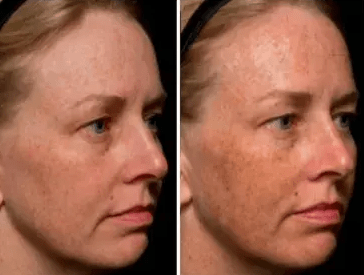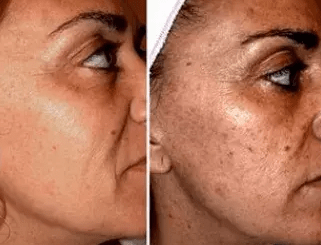Melasma treatment in Turkey: Are you struggling with melasma and seeking a solution that feels personal and effective? At Signature Aesthetica in Istanbul, we understand how melasma can impact your confidence. Our expert team is dedicated to helping you regain your natural glow through tailored treatments that delve into the root causes of your skin concerns. We combine cutting-edge technology with a compassionate approach, ensuring your journey to clearer skin is both comfortable and empowering. Let us guide you to the ultimate transformation, where you can embrace your beauty and shine with renewed confidence. Experience the Signature difference today!
Melasma treatment: Quick Overview
| Aspect | Details |
|---|---|
| Treatment Purpose | Reduce pigmentation, even skin tone, enhance confidence. |
| Melasma Causes | Hormonal changes, sun exposure, genetics, certain medications. |
| Common Methods | Topical agents, chemical peels, laser treatments. |
| Ideal Candidates | Individuals with melasma, especially those with fair to medium skin. |
| Treatment Duration | Typically 4-12 weeks, depending on the method used. |
| Downtime | Minimal to moderate; may vary from no downtime to several days. |
| Pain Level | Mild to moderate; often manageable with numbing agents. |
| Expected Results | Faded pigmentation, improved skin tone and texture. |
| Number of Sessions | Generally 3-6 sessions, based on the treatment approach. |
| Longevity of Results | Results can last from several months to years with maintenance. |
Melasma: What is it
Melasma is a common skin condition characterized by brown or gray-brown patches, primarily on the face, particularly the cheeks, forehead, and upper lip. It occurs due to an overproduction of melanin, often triggered by hormonal changes (like pregnancy or birth control), sun exposure, and genetic predisposition. While melasma is not harmful, it can affect self-esteem and confidence. It is more prevalent in women, especially those with darker skin types. Treatment options are available and include topical creams, chemical peels, and laser therapy, aiming to reduce pigmentation and achieve a more even skin tone.
Candidates for Melasma Treatment
- Hormonal Changes: Those experiencing fluctuations due to pregnancy, menopause, or medications.
- People with Sun Exposure: Regular sun exposure can exacerbate melasma.
- Darker Skin Types: Individuals with medium to dark skin are more prone to melasma.
- Anyone looking to reduce pigmentation for aesthetic reasons.
- Women: More commonly affected, especially during pregnancy or while using hormonal contraceptives.
Melasma Treatment Options
| Treatment Option | Description | Effectiveness | Downtime | Pain Level |
|---|---|---|---|---|
| Fractional Laser | Targets specific skin layers to reduce pigmentation. | High | Minimal to moderate | Mild to moderate |
| Chemical Peels | Uses acidic solutions to exfoliate and lighten skin. | Moderate to High | Moderate; redness may last days | Mild to moderate |
| Microdermabrasion | Exfoliates the outer layer of skin for a smoother texture. | Moderate | Minimal; may have slight redness | Mild |
| Sun Protection | Broad-spectrum sunscreen to prevent further pigmentation. | Essential | None | None |
What to expect
Before
Before starting your melasma treatment, you can expect a thorough consultation with a dermatologist or skincare specialist. They’ll assess your skin type, discuss your medical history, and identify potential triggers for your melasma. This step is crucial, as it helps tailor the treatment plan to your specific needs. You might also receive guidance on how to prepare your skin, including recommendations for sun protection and avoiding certain products prior to your treatment.
During
The experience during treatment will vary depending on the method chosen. For instance, if you opt for fractional laser therapy, you may feel mild discomfort, often managed with a topical numbing cream. Chemical peels can also cause a tingling sensation, but this typically subsides quickly. Your provider will ensure you’re comfortable throughout the process, explaining each step along the way. Expect to spend some time in the clinic, as treatments may take anywhere from 30 minutes to an hour. It’s an opportunity to ask questions and understand what’s happening to your skin.
Upon
After your treatment, it’s normal to experience some redness or sensitivity, akin to a mild sunburn. Your specialist will provide post-care instructions, emphasizing the importance of sun protection to prevent further pigmentation. As your skin heals, you might notice initial flaking or peeling, especially after chemical peels, but this is a sign of renewal. In the following weeks, you’ll gradually see improvements as pigmentation fades, revealing a more even skin tone. The journey can be transformative, restoring not just your skin’s appearance but also your confidence. Remember, patience is key—results take time, and your commitment to the process will pay off!
Aftercare Instructions
- Sun Protection: Apply broad-spectrum sunscreen daily, SPF 30 or higher.
- Gentle Cleansing: Use a mild cleanser; avoid harsh scrubs or exfoliants.
- Moisturization: Keep the skin hydrated with a gentle moisturizer.
- Avoid Picking: Resist the urge to pick at any flaking or peeling skin.
- Limit Sun Exposure: Stay out of direct sunlight, especially during peak hours.
- Follow-Up Appointments: Attend any scheduled follow-ups with your dermatologist.
- Avoid Heat: Refrain from saunas or hot showers for a few days post-treatment.
- Use Recommended Products: Follow your provider’s suggestions for post-treatment skincare.
Results
Results from melasma treatment typically begin to appear within a few weeks, depending on the method used. Initial fading of pigmentation can often be seen, with improvements continuing over several months. For treatments like chemical peels and laser therapy, skin texture may also improve alongside pigmentation reduction. While results can be significant, longevity varies; some individuals may enjoy clear skin for years, especially with proper sun protection and maintenance. It’s important to remember that ongoing care is essential to sustain results and prevent recurrence, so establishing a consistent skincare routine is crucial for long-term success.
Before After Melasma Treatment


Melasma vs Hyperpigmentation
| Aspect | Melasma | Hyperpigmentation |
|---|---|---|
| Definition | A specific type of skin discoloration characterized by brown or gray-brown patches, primarily on the face. | A broader term for any darkening of the skin, resulting from excess melanin. |
| Causes | Often linked to hormonal changes (e.g., pregnancy, birth control), sun exposure, and genetics. | Can be caused by sun exposure, inflammation, acne scars, certain medications, and hormonal changes. |
| Appearance | Typically appears as symmetrical patches on the cheeks, forehead, and upper lip. | Can manifest as spots or patches of varying sizes and shapes, often irregular. |
| Demographics | More common in women, particularly those with darker skin types. | Affects individuals of all genders and skin types. |
| Treatment Options | Topical treatments, chemical peels, laser therapy, sun protection. | Similar treatments, including topical agents and procedures like laser therapy, depending on the cause. |
| Duration | May require ongoing treatment for maintenance; can be persistent. | Duration varies; some types may fade over time while others can be long-lasting. |
FAQ: Melasma treatment
What is the average cost of melasma treatment in Istanbul?
At Signature Aesthetica, Costs can vary depending on the treatment type; the price starts at 150 euro.
Are there side effects associated with melasma treatments?
Yes, potential side effects include redness, irritation, peeling, and in rare cases, changes in skin texture or color.
What should I do before starting treatment?
Avoid sun exposure, stop using certain skincare products (like retinoids), and consult your dermatologist for specific pre-treatment instructions.
Are there other names for melasma?
Melasma is sometimes referred to as “chloasma” or “the mask of pregnancy,” particularly when it occurs during pregnancy.
How many sessions will I need?
Typically, 3-6 sessions are recommended, depending on the severity of the melasma.
Can melasma return after treatment?
Yes, melasma can recur, especially if triggers like sun exposure or hormonal changes are present.
Is it safe to treat melasma during pregnancy?
Many treatments are not recommended during pregnancy; consult your doctor for safe options.
What is the best way to prevent melasma?
Regularly apply broad-spectrum sunscreen, wear hats, and avoid excessive sun exposure.
Are there at-home treatments for melasma?
Yes, over-the-counter creams with ingredients like hydroquinone, vitamin C, or azelaic acid may help.
Book an Appointment for Melasma treatment in Istanbul
Booking an appointment for Melasma treatment in Istanbul, Turkey, has never been easier with Signature Aesthetica. We are dedicated to selecting only the best and highest-rated doctors to ensure that you receive top-notch care.
Our process begins with a thorough evaluation of the leading cosmetic surgeons in Istanbul. We meticulously assess their credentials, success rates, and patient reviews.
Next, we focus on the most attractive and competitive prices. We understand that affordability is crucial, and we strive to offer options that fit various budgets without compromising on quality.
It’s difficult enough to find time for yourself, just give us a phone or a brief message, and we’ll work out a time that suits you, for before after results here our Instagram.



